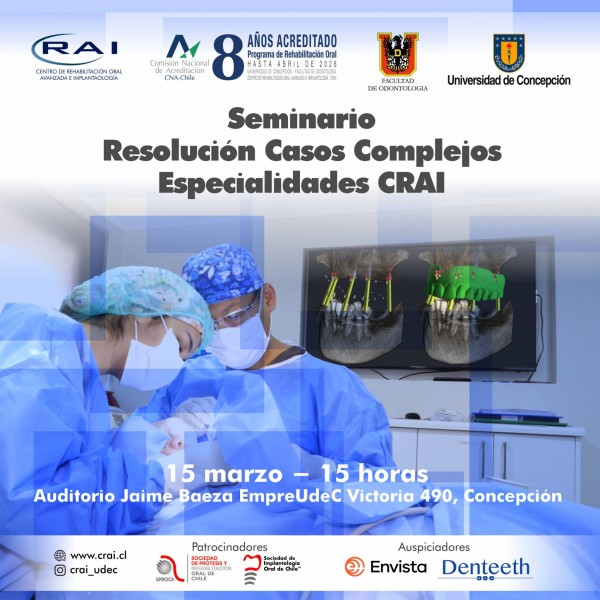Insertion Torque of Mini Dental Implants and Their Failure Risk After Immediate Loading.
International Journal of Odontostomatology, vol 8,(3):351-358, 2014. (ISI)
J Jofré, Y Conrady, B Lagos-Álvarez
ABSTRACT:
A minimum insertion torque has been suggested for immediate function of regular diameter implants. Even when there is a growing tendency to use Mini Dental Implants (MDIs) for immediate function of dentures, there is no clinical data concerning MDIs insertion torque, nor its influence on implant failure. The aim of this prospective study was to assess the insertion torque of immediate loaded MDIs in edentulous patients and its association with risk failure. Ninety MDIs were placed in the anterior mandible of 45 edentulous patients, two per patient. The insertion torque was recorded with an electronic device and failures were documented during two years follow-up. All implants were immediately loaded with overdentures, using ball (44/90) or bar (46/90) attachments. A Kaplan–Meier survival probability estimator and a fitted multiple Cox regression model were performed to establish the influence of insertion torque and other clinical parameters on implant risk failure. The average insertion torque of 90 MDIs was 12.5±7.8 Ncm. A cumulative survival rate of 94.2% (5/90) was found by means of the Kaplan-Meier estimation. The Cox proportional-hazards regression model showed no association between insertion torque and MDIs failure. MDIs have much lower insertion torque than average conventional implants. The insertion torque of MDIs immediately loaded with mandibular dentures, seems not to be a risk factor associated to failure, at two years follow-up.



